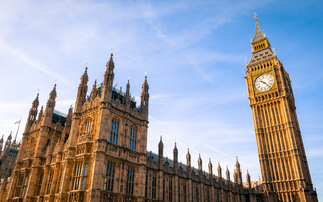
Saving now to spend later would provide much needed cash in emergencies
On my way back to West Sussex last week, I sat facing a Deliveroo advert. It took me a few moments before I realised it was actually offering buy now, pay later takeaway in association with Klarna.
While I had heard of Klarna before, I didn't really understand how it worked… They basically offer two main services to consumers - ‘Pay in three instalments' and ‘Pay in 30 days' - neither of which charge interest or fees (but it will impact your credit rating if you don't pay on time).
‘Pay in 3 instalments' allows users to spread the cost of their purchase into three interest-free instalments. The first payment is made at point of purchase, with remaining instalments scheduled automatically every 30 days.
Klarna's ‘Pay in 30 days' aims to let people try before they buy - paying for what they keep up to 30 days later.
There are, of course, benefits to ‘buy now, pay later'. If my washing machine breaks down and I don't have the money to pay for it immediately, such things can perhaps be of use to those who have little rainy-day savings.
But buy now, pay later takeaway? Why would ordering a pizza, kebab or KFC on credit ever be a good idea? Surely, this is a case of if you can't afford it now, don't buy it now.
Yet, Klarna's buy now, pay later scheme is by far the only one in the market…
A few days later, I received a letter through the post from online retailer Very offering me payment flexibility for ‘just' 39.9% APR... Admittedly you don't have to pay interest (for at least 20 days), but I bet many end up doing so.
They aren't the only ones - indeed you can't go anywhere at the moment without seeing adverts for some sort of buy now, pay later scheme (be it ‘interest free' or otherwise).
I find this particularly worrying during both the current cost of living crisis and in the run-up to Christmas.
It will be all too easy for people who are struggling to go into debt to replace a broken-down washing machine, to buy essential clothes and to put food on the table. For them to go further into debt because they have bought something they perhaps didn't need using a buy now, pay later scheme seems plain wrong.
At a time when savings are already far too low, perhaps we should be encouraging more more ‘save now, spend later' to counter the increasingly ‘buy now, pay later' culture.
And if we could save just a little bit more, perhaps we would also solve the adequacy problem in pensions also.
Jonathan Stapleton is editor of Professional Pensions









